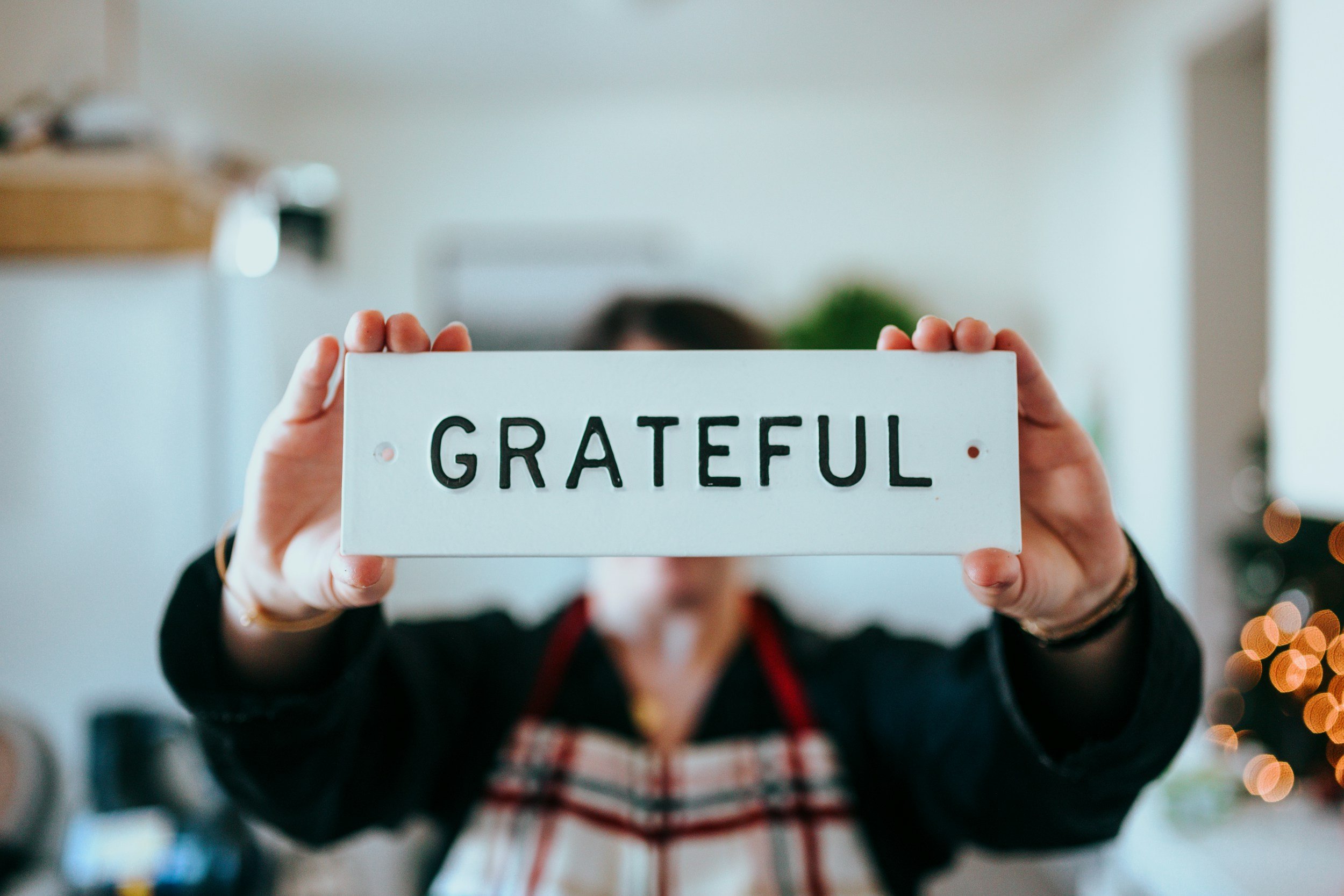The Grove

Understanding Trauma: Beyond the Buzzword
Trauma goes beyond everyday stress—it rewires the brain and nervous system after overwhelming events. Learn to recognize trauma's physical and emotional symptoms, which can emerge years later. At our practice, we offer specialized healing through IFS, Lifespan Integration, and ACT therapies, helping clients achieve not just recovery but post-traumatic growth.

Embracing Imperfect Action
Small discomforts can feel overwhelming, but they don't define our reality. Building emotional resilience requires pushing through off days rather than retreating. While society often encourages avoiding discomfort to "protect your peace," growth often comes from leaning into discomfort. Change happens through action—especially imperfect action. By recognizing that current emotions don’t predict future feelings, we can reshape our experiences and foster growth.

Emotional Flexibility: Bending without Breaking
A candid reflection from our practice manager Shelli Armstrong on developing emotional flexibility through life's challenges. When comparing herself to her mother's seemingly effortless household management while she recovers from surgery, Shelli discovers a powerful truth: like an acrobat's poses, life's demands require us to bend—but we're not meant to hold these positions forever.

Friends Don't Flake: Rebuilding Adult Connection
When we constantly flake on friends and justify it with "self-care," we're fueling an epidemic of disconnection. While setting boundaries matters, we've twisted this concept to avoid vulnerability and meaningful relationships. Good friendships require showing up, being honest about our capacity, and matching others' energy. It's time to stop ghosting and start nurturing the connections that truly bring us peace.

Gratitude Isn’t About Ignoring Your Pain: Finding Balance This Thanksgiving
This Thanksgiving, gratitude isn’t about ignoring your pain. It’s about making space for all your emotions—letting them exist alongside each other. By starting small, like reflecting on peaceful moments or acknowledging your own resilience, you can practice gratitude in a way that feels authentic to you. It’s about recognizing your growth, appreciating what you’ve overcome, and being gentle with yourself.

Insight into Faith Transitions
Navigating a faith transition can be emotionally challenging, impacting your mental health through uncertainty, loss of community, and identity shifts. Therapy provides a safe space to explore these feelings, process grief, and manage cognitive dissonance. It can help you build resilience, find new support systems, and align with your evolving beliefs.

When Friendships Fade: Navigating the Grief of Letting Go
The end of a close friendship can be as painful as the death of a loved one. The emotional distance can feel overwhelming, with feelings of guilt and heartache amplifying the grief. Understanding this loss as part of life's evolving seasons can help in processing these complex emotions and finding healing.

The Importance of Support in Mental Health Recovery
Supporting someone with a mental illness is crucial to their recovery, offering emotional and practical help while respecting their independence. At Roots & Branches, we recognize the importance of strong support systems in overcoming trauma and mental health challenges. As we observe National Recovery Month, remember that your compassion and understanding can make a significant difference in someone's healing journey.

Redefining Therapy Spaces: From Safe to Brave
In therapy, we introduce the concept of "brave spaces" - environments that prioritize safety while acknowledging the inevitability of discomfort in healing. In individual therapy, brave spaces encourage you to confront difficult emotions, challenge unhelpful thought patterns, and process trauma. Your therapist creates this space by supporting you through uncomfortable moments, recognizing them as signs of growth. While therapy can be challenging, it's in these brave spaces that true healing occurs. By embracing discomfort and facing your challenges head-on, you're taking courageous steps towards not just surviving, but thriving in your mental health journey.

Understanding Internal Family Systems (IFS) Therapy: A Powerful Tool for Trauma Work
Discover the transformative power of Internal Family Systems (IFS) therapy, a modality we like to use for trauma work and more. Learn how IFS views the mind as a system of parts, each with unique roles, and how accessing the core Self can harmonize these parts. Explore the process of identifying parts, developing compassionate relationships with them, and restoring balance. Insights from our therapists highlight the holistic approach, the acceptance of all parts, and the integration of mind and body in this empowering therapeutic model.

Building Resilience: The Power of Distress Tolerance Skills
Life's challenges can be overwhelming, but distress tolerance skills can help you navigate tough times. This post explains key techniques like mindfulness, emotional regulation, and self-soothing, offering practical examples and advice on developing these skills. By incorporating distress tolerance into your daily routine, you can build resilience, cope healthily, improve relationships, and enhance your overall well-being.

Dealing with Infertility: The Decision to Stop Trying for a Baby
"When is it OK to stop trying to conceive?" This question weighs heavily on those facing infertility. While deeply personal, an informed decision considers emotional, physical, and financial factors. There are alternative paths to parenthood, or the option to embrace a child-free life. In recognizing the complexity of this decision, seeking support and understanding while considering alternative paths can guide you to a life of fulfillment and joy.

Embracing Body Neutrality
Discover the path to inner peace through body neutrality. Shift your focus from appearance to functionality by appreciating what your body can do and how it feels. Try practical strategies like practicing gratitude, engaging in mindful movement, challenging negative thoughts, diversifying media intake, and prioritizing self-care. Remember, seeking support is not a sign of weakness but a courageous step towards self-love. If you're struggling with body image, consider reaching out to a therapist for guidance. You deserve to embrace and celebrate the unique vessel that carries you through life. Let's cultivate a culture of body acceptance together.

Unwinding: The Science Behind Relaxation
In our hectic lives as mothers, finding true relaxation amidst the chaos can feel like an elusive dream. We often resort to distractions like scrolling through social media or binge-watching TV shows, hoping to unwind. However, there's a crucial difference between distraction and genuine relaxation, rooted in the science of our bodies' parasympathetic nervous system.
Distraction offers temporary relief by diverting our attention, but it fails to address the underlying tension within us. In contrast, genuine relaxation involves activating the parasympathetic nervous system, which triggers physiological changes that promote rest and rejuvenation.
Understanding the parasympathetic nervous system is key. It serves as the body's natural relaxation response, slowing our heart rate, deepening our breath, and relaxing our muscles. However, an imbalance in this system can lead to symptoms like fatigue or chronic stress.
If you're ready to embark on this journey of self-discovery and relaxation, don't hesitate to reach out to a therapist. Let's work together to find balance and serenity amidst the demands of a busy life.

Dating Your Grief: Techniques for Coping and Healing by Integrating Grief into Your Life
Grief is a universal human experience, and everyone experiences it in their own way. However, integrating grief into your life can help you come to terms with your loss and move forward in a healthy way. In this blog post, we explore techniques for integrating grief into your daily life, including compartmentalizing, creating a deliberate grief ritual, using a labyrinth, and taking notes. These techniques can help you acknowledge your loss and work through your emotions in a healthy and intentional way.

Prioritizing Mental Health without Shame or Stigma
As we contemplate Mental Wellness Month, we acknowledge the positive shift in societal attitudes toward mental health. Despite this progress, it's essential to recognize that there is still work to be done. Lingering generational stigmas continue to hinder young people from seeking and utilizing therapy, even as society increasingly prioritizes it as a pathway to better health. Understanding the prevalence of mental health events and appreciating therapy as a valuable resource contribute to fostering a culture of well-being. In this evolving landscape, mental health emerges as an indispensable component of a thriving society, one where individuals are supported, and seeking help is regarded as a proactive step toward building a healthier, more compassionate community.

The Impact of Trauma on Memory
This blog post explores the impact of trauma on memory, emphasizing the psychological and emotional responses to distressing events. Trauma, arising from various sources such as physical harm, emotional abuse, or loss, can lead to long-lasting effects on mental health, including conditions like PTSD. The post highlights the significant influence of trauma on memory, explaining how it overwhelms individuals and impairs the processing and integration of memories. The role of the hippocampus in memory processing is discussed, noting its impairment during traumatic experiences. The post also delves into the effects of trauma on the nervous system, leading to hyperarousal or hypoarousal states, making memory processing challenging. It further details how trauma can result in fragmented, incomplete, or suppressed memories, contributing to a "time problem." Therapeutic approaches like Lifespan Integration (LI) are recommended to help individuals process and integrate traumatic memories by establishing a time structure and reinforcing that the trauma is in the past. Overall, the post emphasizes the importance of addressing trauma to promote effective and healthy memory processing.

Embracing the Winter Solstice: A Celebration of Light and Mental Wellness
Across cultures, the winter solstice is celebrated as a triumph of light over darkness. Lighting candles, kindling bonfires, and adorning homes with festive lights are common traditions that reflect the human desire to dispel shadows and embrace the warmth of light. In a metaphorical sense, this celebration encourages us to find and foster the sources of light in our lives.
Beyond the external expressions of light, the winter solstice invites introspection and the cultivation of inner illumination. This could manifest as personal growth, self-discovery, or even acts of kindness that brighten the lives of others. By nurturing our inner light, we contribute to a positive and supportive environment for ourselves and those around us.

Creating a Supportive Holiday Environment for Children
The holidays can be overwhelming and overstimulating for all of us so it’s no wonder that children also feel the strain. Between the holiday magic, parties, and presents, kids can often feel deregulated and they need your help and support to make it through the holiday break. This post delves into some of the ways we can support our children during the winter holidays while celebrating the season of giving, gratitude, and love.

Navigating Grief: My Journey with Acceptance
🤔 Ever wondered how to navigate the messy world of grief and come out stronger on the other side? 💪 Our latest blog dives into the personal journey of our practice manager with therapy and Acceptance and Commitment Therapy (ACT). Spoiler: it's all about finding balance and embracing life, pain and all! Head to our blog for the full scoop. 🚀 #GriefJourney
